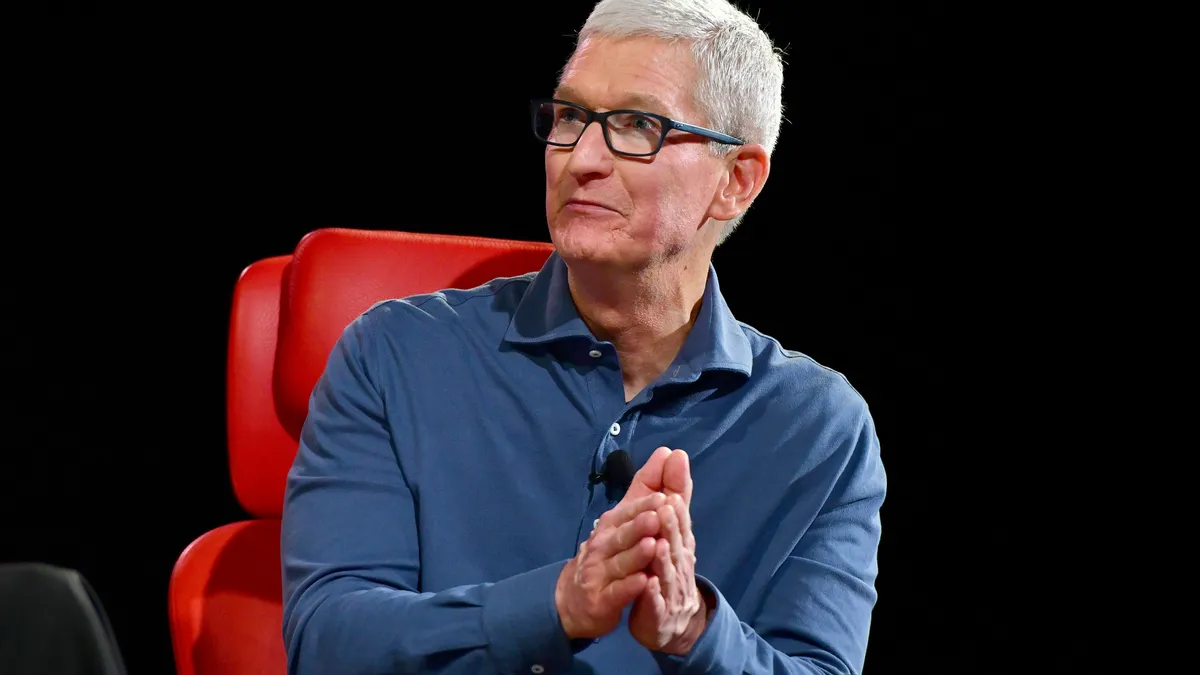Dive Brief:
- Apple CEO Tim Cook blamed European Union regulations for upcoming changes to the company’s payments services in that region that he suggested may hamper “the privacy, security and usability” of its products. Cook addressed the EU regulation’s effects during a fiscal first-quarter earnings call last Thursday.
- Cook listed allowing developers to use non-Apple payment providers and access the contactless payments ability on its devices as two of the changes the Cupertino, California company would make next month.
- As to how the changes would affect Apple’s bottom line, Cook said it was “very difficult” to predict, and that the company will “see what happens in March.” CFO Luca Maestri said that the EU accounts for about 7% of the tech giant’s global app store revenue.
Dive Insight:
Cook’s warnings echo a press release last month from Apple where it laid out the details of its upcoming changes in the EU. Complying with the European Union’s regulation would expose users to “malware, fraud and scams, illicit and harmful content and other privacy and security threats,” the release said.
The regulatory updates could affect the company’s iPhone, iPad and Apple Watch products.
“We’ve really majored on privacy, security and usability,” Cook said during the call last week. “But we’re going to fall short of providing the maximum amount that we could supply because we need to comply with the regulation,” he said of the EU services.
The changes infringe on the company’s “walled garden” strategy, in which it tightly controls the hardware and software of its devices. However, Apple will still collect fees on purchases made through iOS apps, the release said. The tech giant offered to open up access to contactless payment apps late last year, according to a report by Reuters, citing unnamed sources.
But those changes may not actually have much effect on Apple’s business. When Mark Zuckerberg, CEO of rival company Meta, was asked about the opportunity during an earnings call last Thursday, he said it was unlikely that he would take advantage of it.
“I don't think that the Apple thing is going to have any difference for us,” Zuckerberg said. “They've made it so onerous and, I think, so at odds with the intent of what the EU regulation was that I think it's just going to be very difficult for anyone, including ourselves, to really seriously entertain what they're doing there.”
Apple has worked to build out its payments business, as part of its broader “services” category, to supplant slowing iPhone revenue, said Creative Strategies President Carolina Milanesi by email.
During an Apple earnings call last November Maestri said the company’s gains in payments were “very, very important” as part of a strategy to get users of Apple’s hardware to also start paying for its software.
Apple did not immediately respond to questions about the upcoming changes it is making in the EU.













